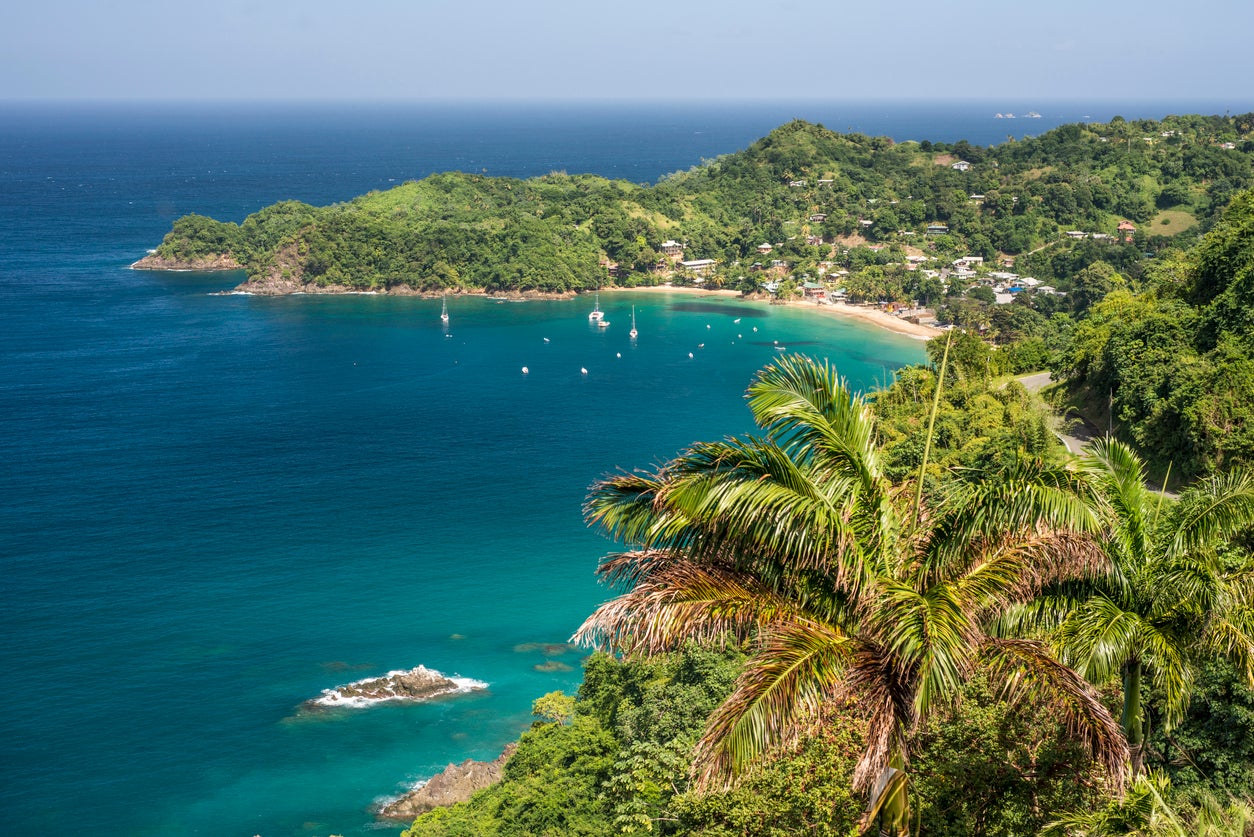
Though many short-haul and European holiday destinations have now scrapped their pre-travel test requirements (some of them dropping all Covid-related rules altogether), many mid- and long-haul countries still ask you to test before your trip.
The US was the most recent to drop its pre-travel test - on 12 June - though only vaccinated visitors are allowed into the country. Australia and New Zealand have both recently dropped their pre-travel test for vaccinated visitors.
There are no hard and fast rules from region to region - in Asia, for example, UK travellers still cannot visit China or Japan for tourism reasons, while South Korea is open to all vaccinated people. In the Indian Ocean, Mauritius and the Maldives have scrapped their pre-travel test, while Madagascar’s rules remain pretty strict.
Here are the places where you still need to plan in advance and organise the correct tests to get in.
Some Caribbean islands
The Caribbean is a mixed bag at the moment: the Dominican Republic, Cuba, US Virgin Islands and Jamaica have dropped all requirements for testing or proof of vaccine requirements for travellers, regardless of vaccine status. Meanwhile St Lucia, Antigua, the Bahamas, St Maarten and Barbados require a test for unvaccinated or partly-vaccinated travellers only. But Saint Kitts and Nevis, Trinidad and Tobago, Anguilla, and the British Virgin Islands all still require a test of both vaccinated and unvaccinated UK arrivals, while the Cayman Islands requires both proof of vaccination and a test.
For St Kitts, a PCR within the three days before travel or an antigen within 24 hours will do the trick; for Trinidad and Tobago it’s a PCR or professionally-administered antigen test within 48 hours before. For the BVIs, everyone aged five and over, regardless of vaccination status, must present a negative rapid antigen test or PCR test taken within 48 hours prior to arrival. Anguilla requires both proof of vaccination and a test (a PCR with 72 hours/antigen within 48 hours). The Cayman Islands requires all visitors to be fully vaccinated, and insists on a negative result from a PCR or certified antigen test, taken no earlier than the day before departure, for everyone five and above.
Madagascar
Madagascar doesn’t require proof of vaccination to enter, but does demand all travellers undergo a PCR test within the 72 hours before departure. You must then pay to take an antigen test on arrival, at a cost of £13. If you test positive on arrival, you must go into official hotel quarantine for seven days at your own expense.

Japan
Japan is only open to UK visitors booked on to certain private, government-approved group tours at the moment - though both fully vaccinated and unvaccinated travellers are welcome on these. However, there are hopes that this will expand to include individual tourists in the coming months. The testing requirements are as follows: all visitors must take an approved Covid-19 test within the 72 hours before their flight departure time - this can be a nucleic acid test such as an RT-PCR or LAMP test, or a “qualitative antigen test”. They must also sign a written pledge to abide by the local Covid health rules, and fill in an online health questionnaire before travel.
Rwanda
Testing is mandatory for all visitors over five ahead of your journey to Rwanda, even if you’re vaccinated. You can take a (professionally administered) rapid antigen test within the 72 hours prior to departure time, but you no longer have to take a PCR test on arrival, and there’s no passenger locator form.
Russia
While the Foreign Office currently advises against all travel to Russia. But if you did have an essential reason to go, you’d need to produce a negative PCR test taken within the 48 hours before your arrival. Passengers may be screen for further tests on arrival.

The Philippines
Only fully vaccinated people are able to travel to the Philippines, and must take a PCR test within the 48 hours before departure or an antigen test within the 24 hours beforehand. Children aged 11 and under are allowed to accompany vaccinated parents while unvaccinated, with those aged three and under exempt from testing. You must show your proof of vaccination, a valid return ticket for your trip on arrival, a passport with six months’ validity after you leave and travel insurance with minimum coverage of $35,000, including Covid treatment. There’s also an online platform you must register with.
South Korea
All visitors to South Korea - whether fully vaccinated or unvaccinated - must upload their journey and contact information to the Q-Code website before departure. This platform requires you to provide a negative PCR result from a test taken within the 48 hours before departure, or a professionally administered antigen test taken within 24 hours, in order to receive a QR code. You then show this at Korean immigration. Children aged five and under do not need to have a negative test result to enter, regardless of vaccination.
Everyone must be tested on arrival in Korea, within the first 72 hours of your trip - “You can reserve an appointment for a PCR test upon arrival at Incheon Airport or take a PCR test within 72 hours of arrival in South Korea at a medical institution near your accommodation or residence,” advise the authorities. Anyone testing positive must then isolate in a quarantine centre for seven days.

Recently scrapped pre-travel tests for vaccinated arrivals
- Australia
- Canada
- India
- Brazil
- Sri Lanka
- Mauritius
- UAE
- The Maldives
- Antigua
- St Lucia
- Dominican Republic
- Cuba
- Jamaica
- Kenya
- Chile
- Tanzania
- Namibia
- Botswana
- Oman
- Kazakhstan
- Uzbekistan
- Pakistan
- Mongolia
- Singapore
- Cambodia
- Argentina
- Colombia
- Thailand (though you still have to apply to visit)
- Indonesia
- Vietnam
- Morocco
- Uganda
- Malaysia
- French Polynesia
- New Zealand
- The Bahamas
- Barbados
- Fiji
- Peru
- Guatemala
- Belize
- Brunei
- Tunisia







